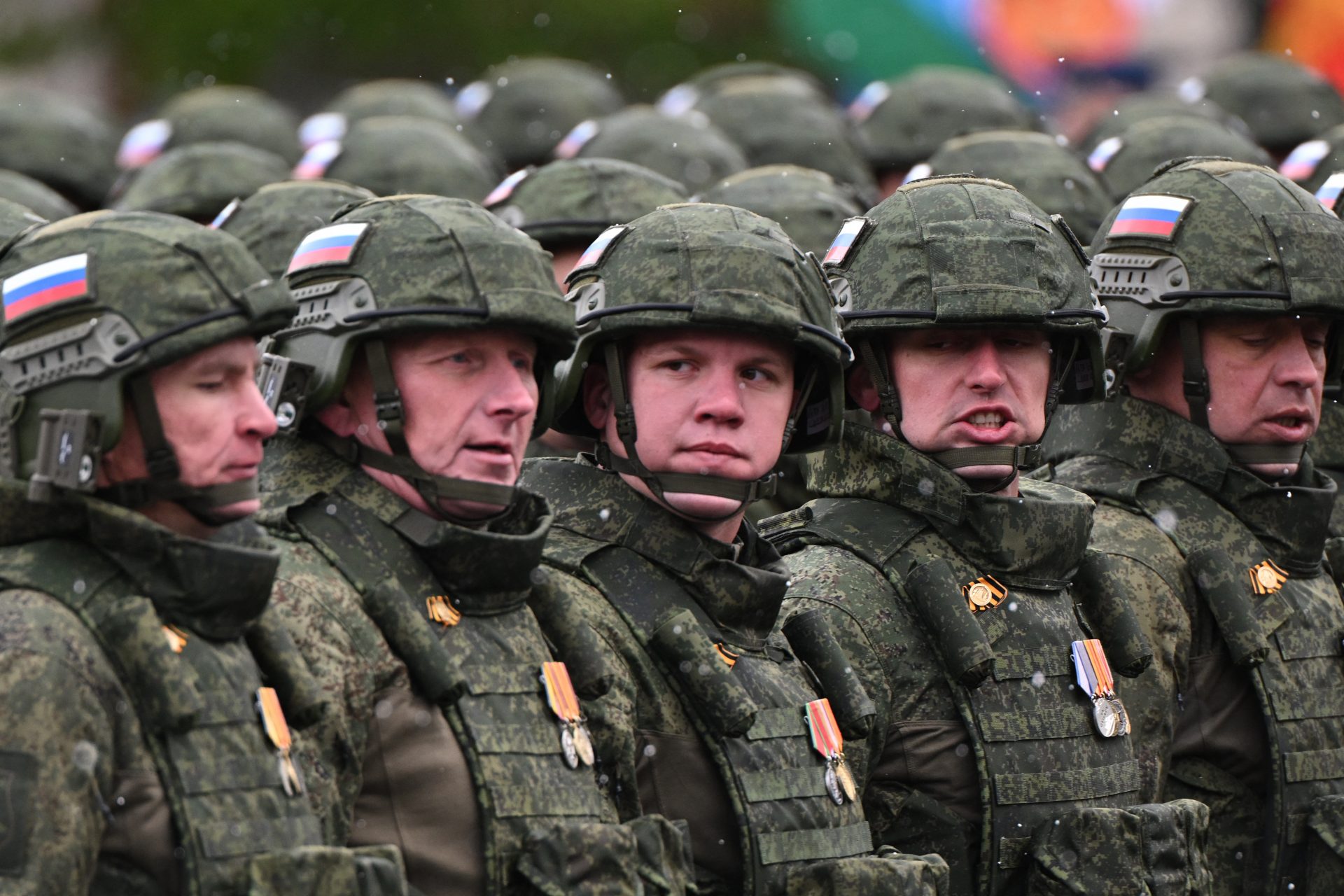How are Ukrainian refugees adapting to their new homes? German study reveals the answer
The Russian-Ukrainian conflict, which had been smouldering since 2014, escalated on February 24, 2022, when Russian troops invaded Ukraine, beginning the war. It didn't take long for the first people to flee Ukraine, initially to neighbouring countries.
By December 2022, the UN refugee agency estimates that around 16.1 million people have fled Ukraine because of the war. About 4.73 million refugees were registered in the borderlands of Ukraine. With more than 1.5 million people, Poland took in the most Ukrainian refugees, while 463,000 people arrived in the Czech Republic.
The number of Ukrainians in Germany has also increased since March. According to the Federal Statistical Office, 976,000 people from Ukraine were living in Germany on August 31, 2022.
Before the war's outbreak, at the end of 2021, 138,000 people with Ukrainian citizenship - around 1.3% of the immigrant population - were living in Germany for various reasons.
The war also changed the Ukrainian population in Germany, both in terms of gender and age. Since the end of February, there has been a massive increase in the number of Ukrainian children living in Germany.
But how are these refugees from Ukraine doing? And what future plans do they have? The research project "Refugees from the Ukraine" was developed to shed light on this.
The Federal Institute for Population Research, the Institute for Labor Market and Vocational Research, the Research Center of the Federal Office for Migration and Refugees and the Socio-Economic Panel at the German Institute for Economic Research Berlin have created the first comprehensive, representative social-science survey to assess the well-being of Ukrainian refugees in Germany.
The four organizations presented the first results from the short study at a national press conference on December 15, 2022, and then published them.
How Ukrainian refugees escaped the terrors of their homeland and arrived abroad is quite different compared to those who emigrated by choice before the war. Ukrainian refugees did not have entry visas and were granted temporary residence without an asylum procedure. For this reason, scientific findings from previous studies can only be transferred to a limited extent. The current study is intended to create a scientific data basis for political decision-making processes and follow-up studies.
11,225 Ukrainians aged 18 to 70 were interviewed from August to October 2022. They fled to Germany between February 24, 2022, and June 8, 2022, and were registered with the residents' registration office. The questionnaires were provided online and in paper format, as well as in Ukrainian and Russian. The questions related to all areas of the life of the Ukrainian refugees.
96% of those questioned said the war as the main reason for their flight from their homeland. 18% chose Germany because they have family or friends there. For 10% of Ukrainians, the poor economic situation was the main reason for fleeing.
These results can also be confirmed based on the regions of origin. More than 66% of the refugees come from the war-affected areas in eastern Ukraine (32%), Kyiv (19%) and southern Ukraine (14%).
For 60%, family relationships, friends and acquaintances were the main reason they chose Germany. For others, respect for human rights (29%), the welfare system (22%), the education system (12%), the welcoming culture (12%), and the economic situation in Germany (10%) were deciding factors.
18% of the interviewed refugees said they only came to Germany by chance. A good 80% of the Ukrainian refugees fled with family members, friends or acquaintances, and 61% with their partners and underage children.
With an average age of 28 years old, the refugees were significantly younger than the overall population of Ukraine, where the average age is 41. The proportion of women was also much higher: 80% of the refugees are women between the ages of 18 and 70.
At the time of the survey, 74% lived in private accommodation, the majority alone or with family members who had also fled. 25% of the Ukrainians who arrived could stay with their family or friends, and 15% with others. 17% lived in hotels and 9% in lodgings. 16% of the refugees were assigned their place of residence.
Another component of the short study was the qualifications and employment of the recently arrived Ukrainians. They had a significantly higher level of education than the Ukrainian population as a whole. 72% of the Ukrainians who entered the country as refugees had an academic degree such as a bachelor's (13%), master's (52%) or a doctorate (4%).
An interesting finding of the study is the impact of education and housing on health status. 39% of those surveyed stated that they were doing well or very well. Only 10% reported bad or very bad. Those who rated their health as good were younger men, refugees with a high level of education or those who lived in private accommodation. Refugees who came to Germany without a family rated their health worse than refugees with children.
About 60% of adults with a child or children stated that their child laughs a lot and has fun. For 12% this is never or rarely the case. Compared to the reference values of other children living in Germany, the results for Ukrainian children of all age groups are significantly lower.
At the beginning of December, the number of children and young people admitted into the school system increased more than tenfold to around 201,600. The 'Spiegel' reported at the end of November that more than 200,000 Ukrainian children are being taught at all kinds of German schools.
According to the study, 33% felt "completely" welcome when they arrived in Germany, and 43% rated their experiences as "mostly" good. Only 7% felt "little or not at all" welcome. There was no significant difference between the different groups.
In the survey, the majority of refugees indicated that they already had a residence permit or temporary residence permit. Thus, 90% of the Ukrainians surveyed had at least a temporary residence permit until March 2024. Only 3% were in Germany without a visa.
At the time of the survey, 17 percent of the refugees of working age had a job. 71 percent pursued a job that requires a university or professional qualification. Six months after moving to Germany, 18% of the Ukrainian population was employed, 2% more than after a 3-month stay in Germany. 88% of the refugees worked in the service sector. A third of the refugees had a job that required a university degree. 71% had a qualified or highly qualified job, but this proportion is significantly lower than before the move (93%).
Eight out of ten refugees stated that they had little or no knowledge of German. Only 4% had good or very good language skills. Higher educated, employed and younger Ukrainians rated their skills higher than average.
At the beginning of the short study, 51% attended a German course, 35% an integration course and 15% had decided on another language offer. As the length of stay increased, so did the number of course participants. Two months after their arrival, 9% learned German, after four months 33% and after six months 49%. When deciding on a German course, the intention to stay was an important factor. 57% of the refugees who wanted to stay in Germany long-term attended a language course after just 6 months.
About 50% of the refugees interviewed spent several times a week with other Ukrainians who did not belong to the nuclear family. This was particularly the case in the 31 to 65 age group. In addition, 44% met Germans regularly, 15% preferred to keep to themselves. Refugees with a good knowledge of German, employed persons or those who attended school or were accommodated privately had the most frequent contact with Germans.
88% of the refugees needed advice and support, especially when learning German (49%), looking for a job (38%) and medical care. In addition, the search for accommodation, the recognition of qualifications and dealing with the authorities caused problems.
When evaluating the life satisfaction of the Ukrainian refugees, the average value on a scale from 0 to 10 was 5.8. According to calculations, the satisfaction of Germans in 2020 was 7.5. It was also shown that refugees who wanted to stay in Germany permanently and were able to communicate well were happier.
The highest proportion of families with minors was in the 20 to 40 age group. Around 12% of families with underage children had at least one other child living abroad. 42% of mothers under the age of 50 wanted to bring their children home if they were still living abroad. Around three quarters of the women living apart as a result of the war and 65% of the men had daily contact with their partner at home.
34% of the refugees wanted to stay in Germany until the end of the war. 81% of them planned to return to Ukraine afterwards, 26% of the refugees wanted to stay in Germany permanently. 27% were not yet sure whether and how long they would like to stay.
The study is planned as a longitudinal survey, and in January 2023 a second survey wave (online only) will be carried out. The first detailed results are to be published in February 2023 as part of a research report. The long-term goal is to gain insights into Ukrainian refugees, their integration experiences in Germany and their return migration plans. The surveys are carried out by the Institute for Applied Social Sciences.
More for you
Top Stories











































